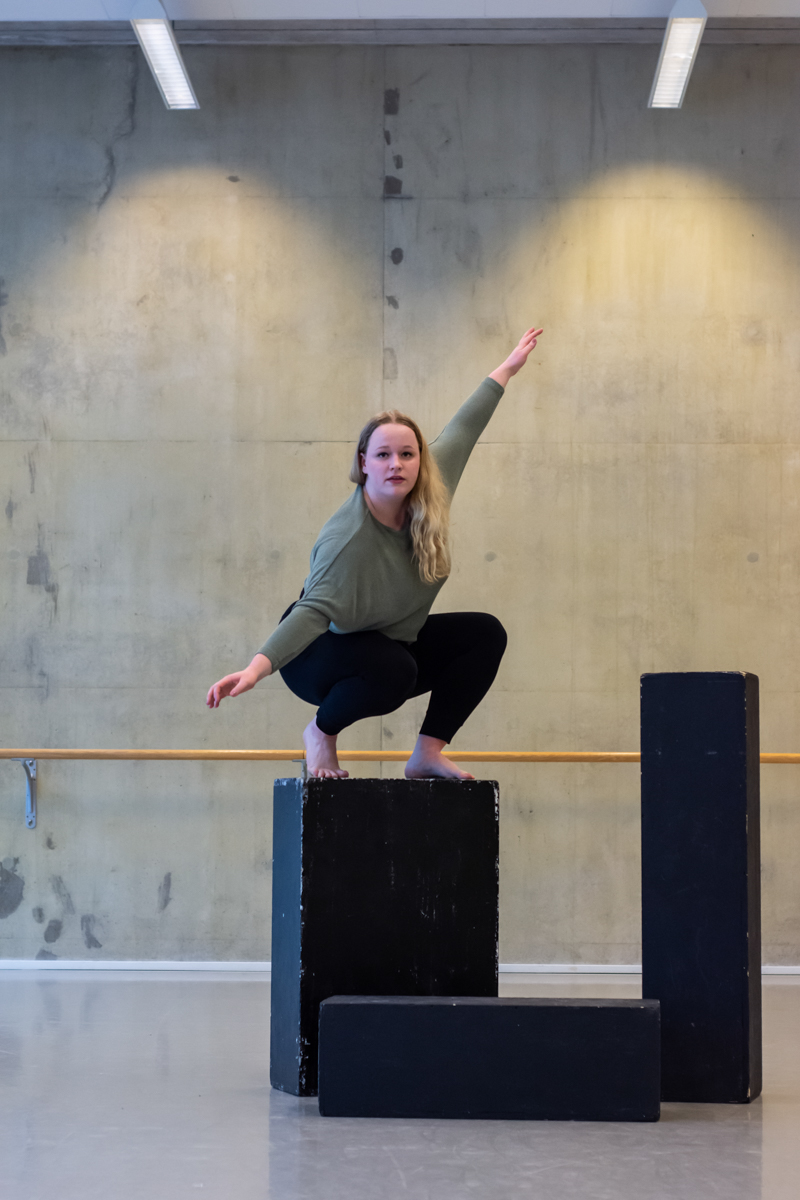Lize Wubbels

(English below)
Zoveel mogelijk mensen laten proeven van wat dans kan zijn, zodat ze zichzelf leren ontdekken en respecteren
Voelen, jezelf uiten en een verhaal vertellen met je lichaam, dat is wat Lize achttien jaar geleden meemaakte toen ze begon met dansen. Het was, en is nog steeds, een bevrijding voor haar om haar lichaam te bewegen en daar zichzelf en anderen mee te kunnen raken. Vooral binnen de moderne dans heeft ze daarin haar eigen weg gevonden.
Tijdens het eerste stadium van haar afstudeeronderzoek kwam ze erachter dat dans en therapie goed samengaan en dat dit ook op meerdere manieren wordt aangeboden in Nederland. Maar wat gebeurt er als je het omdraait en de therapie gaat verwerken in een dansles voor amateurs? In haar onderzoek wil ze erachter komen hoe bijvoorbeeld tieners nog meer zichzelf kunnen gaan uiten in dans, zoals zij dit zelf ook voelt als ze aan het dansen is.
Uitdaging is iets waar Lize altijd naar op zoek is, en dan vooral de onverwachte hoeken van het werkveld. In de toekomst wil Lize graag verder kijken hoe dans kan bijdragen in de hulp aan mensen, in alle leeftijdsgroepen, die het moeilijk hebben, zowel op fysiek als mentaal gebied. Vandaar dat ze vanaf komend schooljaar zal beginnen met haar deeltijdstudie HBO Social Work, om te kijken hoe dans en sociaal werk te combineren zijn.
Emailadres: lizewubbels@hotmail.com
Letting people experience what dance can be, to allow them to discover and respect themselves
Feeling, expressing yourself, and telling a story with your body, that is what Lize experienced eighteen years ago when she started dancing. It was, and still is, liberating for her to dance and find that she can move herself and others with her stories. She has particularly found her own way in modern dance.
During the first stage of her graduation research, she found out that dance and therapy work well together, and that there is a variety of offerings in this field in this country. But what happens when you turn things around, and incorporate the therapy in an amateur dance class? In her research, she wants to discover how, for example, teenagers can express themselves even more through dance, the way she experiences this herself when she is dancing.
Lize is always looking for a challenge, and particularly the unexpected corners of the work field. In the future, Lize hopes to find more ways for dance to contribute to helping people, of all ages, who are suffering, both physically and mentally. For that reason, she will start a part-time higher education social work programme next year, to see how dance and social work combine.



